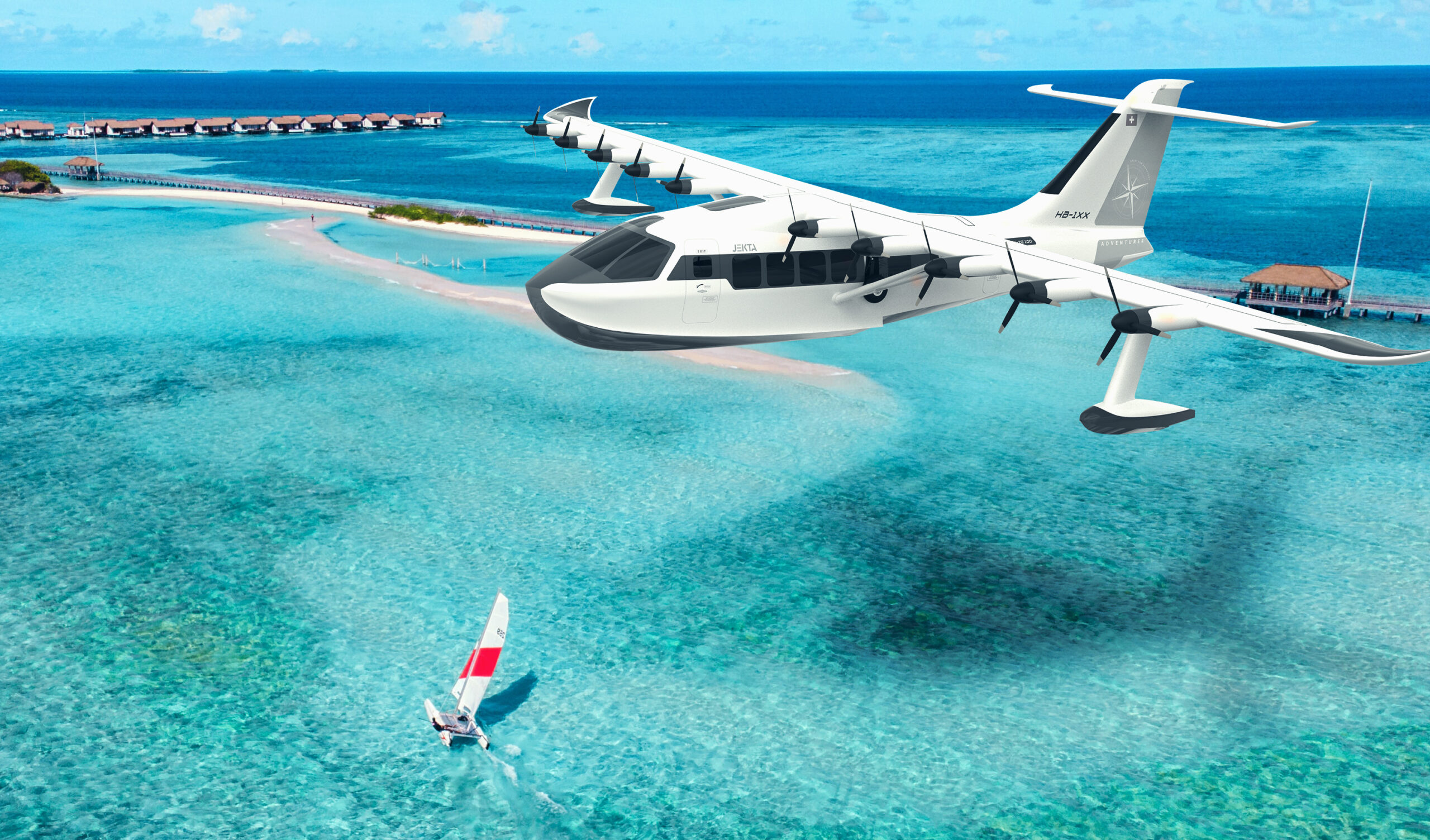Open Skies Network secures investment to integrate next generation seaplanes and autonomous aircraft into South West UK
Open Skies Network (OSN) — a spinout from the successful Open Skies Cornwall project — has secured investment from the Great South West’s New Innovators in Marine and Maritime fund.
The funding will enable the expansion of its network and explore options to accelerate the introduction of electric seaplane, amphibian and cargo drone capability in the South West of the UK.
The investment will build on the recent trailblazing progress made by the Open Skies team in unmanned cargo adoption in Cornwall, and increase its water, manned aviation and regional air mobility geographic footprint.
Gareth Whatmore, CEO of Open Skies Network, said: “Decarbonised aviation is moving from concept to reality, and the South West is perfectly placed to lead the way and establish an Open Skies Network to support a new wave of aviation services.
“The HarbourLift programme will build the evidence we need to understand how these aircraft can serve real community needs, while reducing emissions and supporting regional economies.”
OSN is a new commercial company, spun out from the highly successful Open Skies Cornwall project and comprising former winners of the Future Flight Challenge, community leaders, technical specialists and regulators.
The company has launched in Cornwall to with a vision to establish a regional Open Skies Network of enabling infrastructure, landing zones, and airspace that will accelerate the adoption of new aviation and regional air mobility.
OSN has already developed a shared airspace Concept of Operations partnership with the Civil Aviation Authority and local aerodromes in the South West to support the adoption of civilian drone operations in its South West launch market.
It has also attracted seven aircraft manufacturers and four operators to fly sorties that will validate commercial regional requirements of Open Skies partners, including Royal Mail, the NHS, Falmouth Harbour and Cornwall Council.
The ‘HarbourLift’ programme will initially assess the feasibility of operating zero-emission flights between key harbour cities and towns in Dorset, Somerset, Devon, Cornwall and the Isles of Scilly, enabling greater coastal connectivity through the use of sustainable, short-hop air mobility.
The team will work with local ports, harbours, aircraft manufacturers and operators to examine the full range of factors required to introduce electric seaplanes to the region, including:
- Aircraft performance and energy requirements
- Docking and charging infrastructure needs
- Suitability of harbours and maritime environments
- Integration with ferries, rail, buses, and conventional regional aviation
The programme will also look beyond passenger travel, exploring how amphibian aircraft and seaplanes in a variety of sizes and configurations could support existing OSN partners including medical logistics (NHS), emergency response (Maritime Coastguard Agency), and sustainable parcel delivery (Royal Mail) across the South West’s dispersed coastal and island communities.
The programme comes at a critical time for coastal communities, which often face limited transport options, long journey times, and seasonal congestion.
By validating how clean aviation technology could work in practice, HarbourLift aims to demonstrate how short-hop amphibian services could provide a faster, greener, and more sustainable alternative for regional connectivity and establish further port, manufacturer and operator partnerships to implement network expansion, allowing for wider service adoption.
Community-Led Innovation
A defining feature of the OSN approach is its commitment to engagement with residents, businesses, and harbour users. From fishermen and ferry operators to tourism providers and local councils, community input will be central to shaping how electric seaplanes might be deployed.
Louis Gardner, Programme Manager of the HarbourLift initiative, said: “Transport innovation only works if it reflects the voices of those who use it. That’s why HarbourLift is as much about consultation as it is about technology.
“We want to ensure cleaner air travel is developed in a way that truly benefits coastal towns and that our ports and harbours are Aviation Ready.”
A Greener, Faster Alternative
Electric seaplanes and new generation zero-emission amphibian aircraft combine several advantages over alternative transport methods, including low noise, zero direct emissions, and short-haul efficiency, with dual use capabilities across water and land. For communities separated by challenging road or ferry journeys, they have real potential to dramatically cut travel times.
Wouter du Preez, Chief Investment Officer at JEKTA Switzerland, which is developing a new generation of zero-emissions amphibious aircraft, said: “Sustainably powered amphibian aircraft with multi-purpose operating capabilities across water and land open up a new era of affordable, sustainable air mobility that has the potential to add real value to local communities — especially those in traditionally remote geographies.
“The HarbourLift programme provides a fantastic opportunity to work closely with local communities, infrastructure providers and service operators within the Open Skies Network to test and evaluate integration opportunities; informing ultimate service design to meet the needs of businesses, civil services, and residents alike.”
The first stage of the HarbourLift Pilot Programme will run through 2025–26, with interim findings informing the implementation stage in 2026.


